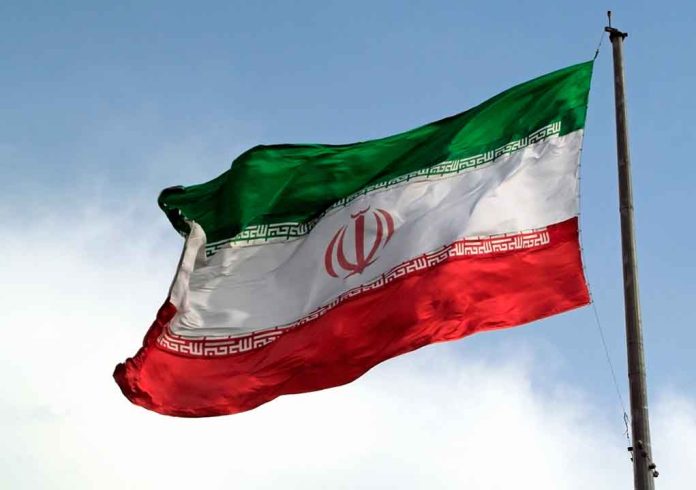
Iran vehemently denies supplying ballistic missiles to Russia, as tensions escalate with Western powers over alleged arms transfers.
At a Glance
- The U.S. and Britain accused Iran of transferring short-range ballistic missiles to Russia.
- Iran strongly denies the allegations, calling them “baseless and false.”
- Western powers have imposed new sanctions on Iran and Russia.
- Concerns have been raised about deepening military cooperation between Iran, Russia, and other nations.
- The U.S. has committed over $55.9 billion in security assistance to Ukraine.
Iran Denies Missile Transfer Allegations
In a stark confrontation between Western powers and Iran, accusations of ballistic missile transfers to Russia have ignited a fierce diplomatic dispute. The United States and Britain have leveled serious allegations against Iran, claiming it has supplied short-range ballistic missiles to Russia for potential use in the ongoing conflict in Ukraine. However, Iran has categorically rejected these claims, dismissing them as unfounded and false.
The Iranian Foreign Ministry has taken a firm stance against these accusations. Spokesman Nasser Kanaani stated unequivocally, “Any claim that the Islamic Republic of Iran has sold ballistic missiles to the Russian Federation is completely baseless and false.” This denial comes in the face of mounting pressure from Western nations, who view the alleged arms transfer as a significant escalation in the Ukraine conflict.
‘Economic terrorism’
Iran pledges reaction to new Western sanctions over alleged Russian missile supply https://t.co/Pzdw3zILVw pic.twitter.com/t3mhn27C8E
— Al Jazeera English (@AJEnglish) September 11, 2024
U.S. and Allies Respond with Sanctions
In response to the alleged missile transfers, the United States, Britain, and other Western allies have announced new sanctions targeting both Iran and Russia. These measures include travel bans, asset freezes, and restrictions on Iran Air’s flights to the UK and Europe. The sanctions are aimed at individuals and entities believed to be involved in Iran’s ballistic missile program and weapons transfers to Russia.
“Russia has now received shipments of these ballistic missiles and will likely use them within weeks in Ukraine, against Ukrainians,” US Secretary of State Antony Blinken said. “The supply of Iranian missiles enables Russia to use more of its arsenal for targets that are further from the front line.”
U.S. Secretary of State Antony Blinken has expressed grave concerns about the alleged missile transfers, warning that they could be deployed in Ukraine within weeks. The Pentagon has suggested that this may not be a one-time deal, indicating a potentially ongoing supply relationship between Iran and Russia.
Implications for Regional Security
The alleged transfer of ballistic missiles from Iran to Russia has raised alarms about the broader implications for European and global security. Western officials are particularly concerned about the deepening military cooperation between Iran, Russia, China, and North Korea.
“One has to assume that if Iran is providing Russia with these types of missiles, that it’s very likely it would not be a one-time deal, that this would be a source of capability that Russia would seek to tap in the future,” said Maj. Gen. Pat Ryder.
In response to these developments, the United States has reaffirmed its commitment to supporting Ukraine’s defense capabilities. The U.S. has already committed over $55.9 billion in security assistance to Ukraine since February 2022, with a significant portion dedicated to air defense systems. This includes the provision of advanced equipment such as Patriot batteries, NASAMS, and Stinger missiles, aimed at bolstering Ukraine’s ability to defend against potential missile attacks.
Iran’s Counterarguments and International Stance
Iran has not only denied the allegations but has also argued that providing military assistance to any party in the Ukraine conflict is “inhumane” and leads to increased casualties and destruction. They maintain that their country’s policy is to avoid fueling conflicts and instead promote peaceful resolutions. Iran’s mission to the United Nations added that the country “calls upon other countries” to stop supplying weapons to either side of the war.
As the situation continues to evolve, the international community remains deeply divided. Western nations are pushing for increased pressure on Iran and Russia, while Iran maintains its innocence and calls for diplomatic solutions. The ongoing dispute underscores the complex geopolitical challenges facing the world today, with far-reaching implications for global security and stability.
Sources
- US’s Blinken says Russia received ballistic missiles from Iran
- Iran pledges reaction to Western sanctions over Russian missile supply
- The US and Britain accuse Iran of sending Russia missiles to use against Ukraine
- Iran Gives Russia Short-Range Missiles, While U.S., Partners Expect to Keep Bolstering Ukrainian Air Defense
- U.S. and Britain say Iran is sending Russia missiles to use against Ukraine

















